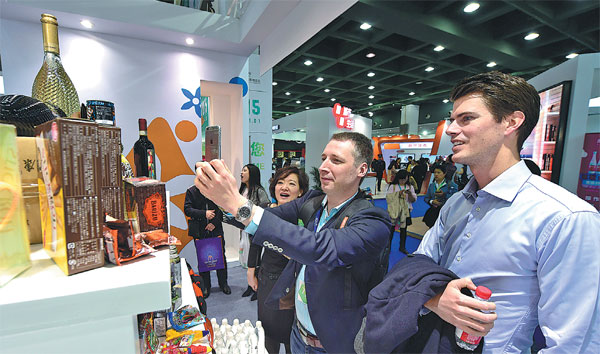Sino-Dutch strong political, business ties foster healthy bilateral trade
China will seek more balanced trade with the Netherlands by further importing quality products and encouraging domestic investment into the country, according to commerce officials and experts.

"Backed by strong political and business ties, both sides have more space to expand trade and investment, and deepen cooperation in such fields as modern agriculture, energy preservation, environmental protection and urbanization this year," said Feng Yaoxiang, a spokesman for the Beijing-based China Council for the Promotion of International Trade.
King Willem-Alexander and Queen Maxima of the Netherlands are paying a working visit to China from Feb 7-8, at the invitation of Chinese President Xi Jinping.
The parties from both countries will exchange opinions on bilateral relations and common concerns.
The visit is expected to cement the strong existing links between the nations and help improve cooperation.
King Willem-Alexander is scheduled to visit South Korea on Feb 8 to attend the 2018 Winter Olympics in Pyeongchang.
Queen Maxima, meanwhile, will remain and attend a series of events to promote green finance and bilateral business.
Eager to expand trading between both sides, in 2014 China and the Netherlands agreed to build a comprehensive partnership that stresses openness and pragmatism.
Bilateral trade volumes between China and the Netherlands grew by 16.5 percent year-on-year to US$78.38 billion in 2017. China remained the Netherlands' third-largest trade partner after Germany and the United Kingdom, data from the General Administration of Customs show.
China mainly exports manufacturing equipment, port cranes, steel, wind power products, electronics, textiles, garments and household appliances to the Netherlands.
In addition to dairy and other agricultural products, water treatment, chemical and pharmaceutical goods, the Netherlands' exports to China include mechanical, transport materials, fossil fuels and tobacco.
"China will continue to export consumer goods in exchange for the Netherlands' high-tech products such as electronics, chemicals and food products, as well as environmental protection and improvement technologies," said Ren Hongbin, director-general of the Department of Foreign Trade at the Ministry of Commerce.
"Most of their imports are complementary. Surely, it isn't direct competition," Ren said.
To bolster the growing trade between the two nations, several Chinese cities such as Nanchang and Chengdu have operated regular freight trains to Rotterdam in the Netherlands since 2015.
"As staunch supporters of the open economy and economic globalization, the Netherlands and China share more interests in jointly tackling global challenges," said Li Guanghui, vice-president of the Chinese Academy of International Trade and Economic Cooperation in Beijing.
Though anti-globalization seems to be on the rise and European integration is suffering setbacks, China and the Netherlands share a common stance on many major issues. Both countries agree on economic globalization and multilateralism, an opposition to protectionism and a commitment to the Paris Climate Agreement.
Zhou Zhicheng, deputy director for market research at the Beijing-based China Federation of Logistics and Purchasing, said that the Belt and Road Initiative has been beneficial for both countries.
China and the Netherlands are both growing economically, increasing the connectivity of their regional infrastructure, improving people-to-people exchanges, and boosting investment and trade on a multilateral cooperative platform, Zhou said.
The Belt and Road Initiative China proposed in 2013 covers 4.4 billion people in more than 60 countries and regions in Europe, Asia and Africa.
Zhou said many countries' surging demand to improve their infrastructure with next-generation projects are set to benefit Dutch and Chinese companies across industries.